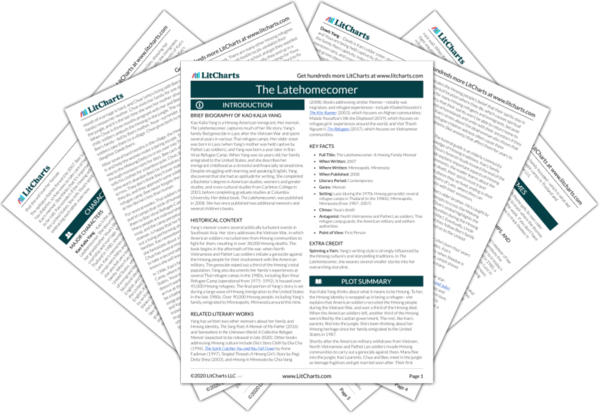The high stakes of this situation, in which the Hmong are being gunned down at every moment, further emphasizes how aggressively they’re being targeted. Meanwhile, Chue wants to remember where she buries her possessions because she believes her spirit will need them in the afterlife to reunite with her family’s spirits. Personal possessions are deeply important in Hmong spirituality, and Chue’s anxiety highlights the cruel suffering the Hmong face when they have to part with such possessions because of political persecution. As before, Youa proves her fierce strength: she has no qualms about risking her own safety to help those she feels responsible for, showing that she is a true leader. Youa’s commitment to remaining with her son—even if it means dying—shows how important family is in Hmong culture.


